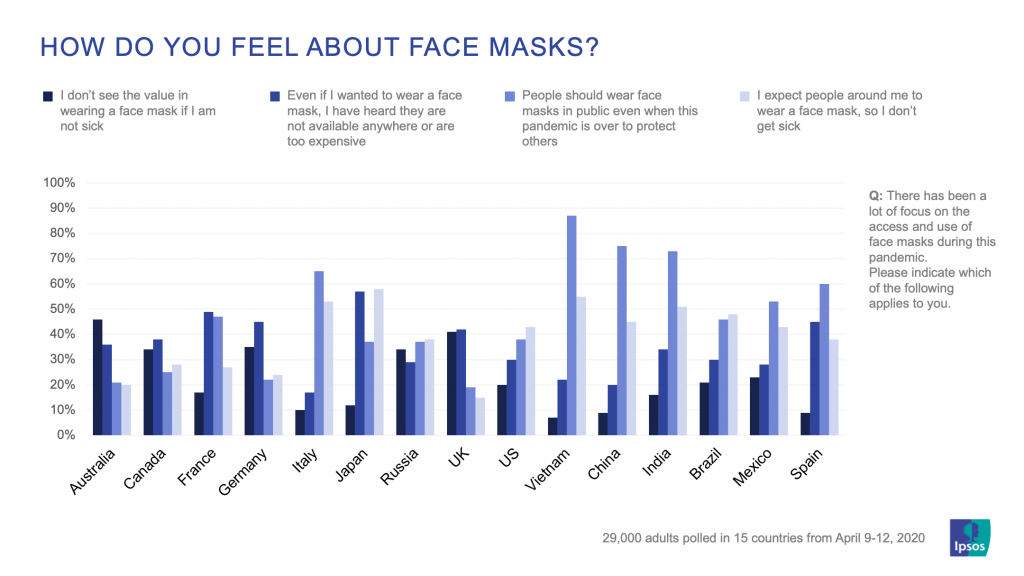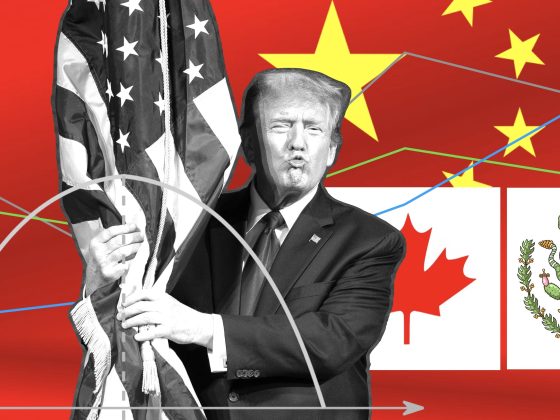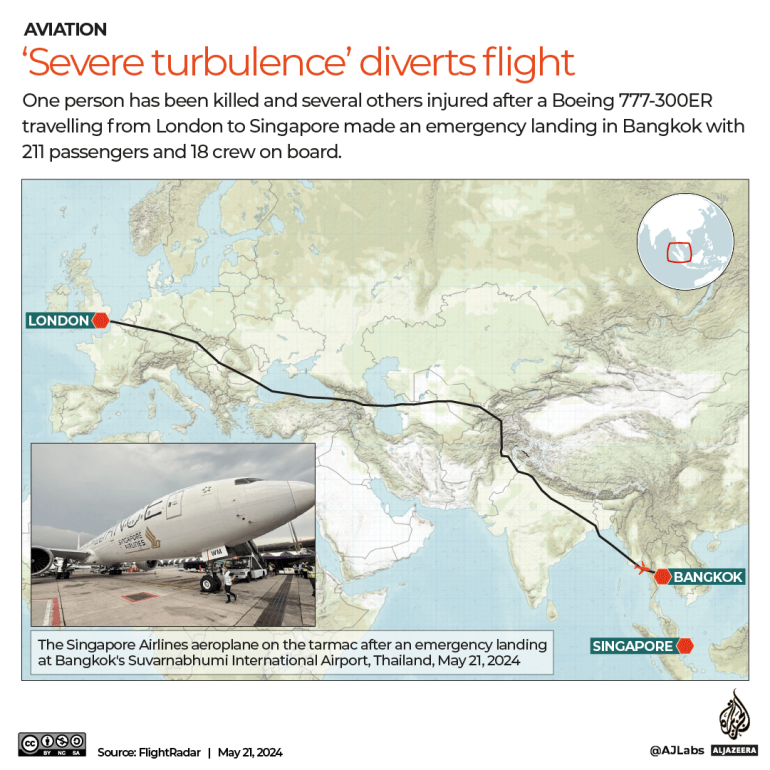Asians are the quickest to pick up the habit of wearing face masks during this pandemic.
To protect themselves from COVID-19, Asian countries are the quickest to adopt the habit of wearing face masks, Ipsos revealed in their survey findings published April 16.
The Ipsos survey was conducted in regular three-day intervals from March 12 to April 12 in order to see the behaviour of the respondents. 29,000 people from 15 countries were asked, “Have you taken any personal actions to protect yourself from COVID-19?”
Highlights
It is Vietnam where the largest share of respondents (91%) reported that they have started using face masks as personal action to protect themselves from COVID-19 as of April 12.
Fellow Asian countries China (83%), Japan (77%), and India (76%) join Vietnam in having a large proportion of respondents picking up the habit of wearing face masks as a protective measure.
Italy, one of the hardest-hit countries, also has a large percentage of respondents saying they have started wearing face masks. As of April 12, the figure stands at 81%.
Surge
Russia had the biggest jump in the percentage of mask wearers. The percentage of mask wearers started at 12 percent which surged to 59 percent, posting a 47 percentage point spike by the end of the study.
Having experienced a massive hit due to the coronavirus, Italy also saw a huge change in the share of face mask wearers during the entire survey duration.
At the beginning of the survey, only 43 percent of the Italians said that they have been wearing face masks. As mentioned, this figure rose to 81% by the end of the data collection phase. This implies a massive +38 percentage point difference.
The United States also experienced a big jump in face mask wearers, coinciding with the huge jump in their number of cases. The country registered a 38 percentage point increase in mask wearers — from 12% to 50%.
Barriers
Developed nations tend to be slow in adopting the habit of wearing face masks, as we can see in the case of the United Kingdom (16%), Germany (20%), Australia (21%), and France (34%).
However, this does not mean that developed countries care less about the pandemic. Germany, for instance, is known for its impressive handling of the outbreak.
Another Ipsos poll on the sentiments of the respondents towards face masks reveals that access seems to be the problem among these countries. Common cited access barriers are cost and availability, which is especially true for hard-hit countries like Spain and France.
On the whole, the trend among the 15 countries is only upward when it comes to wearing face masks. It is apparent that people understand the need to be protected in the midst of this pandemic.
Of course, wearing face masks does not directly entail good pandemic response. However, these rising figures we have seen here show that the people are willing to help in battling this pandemic, especially if they are given access to methods that will allow them to effectively do so.











